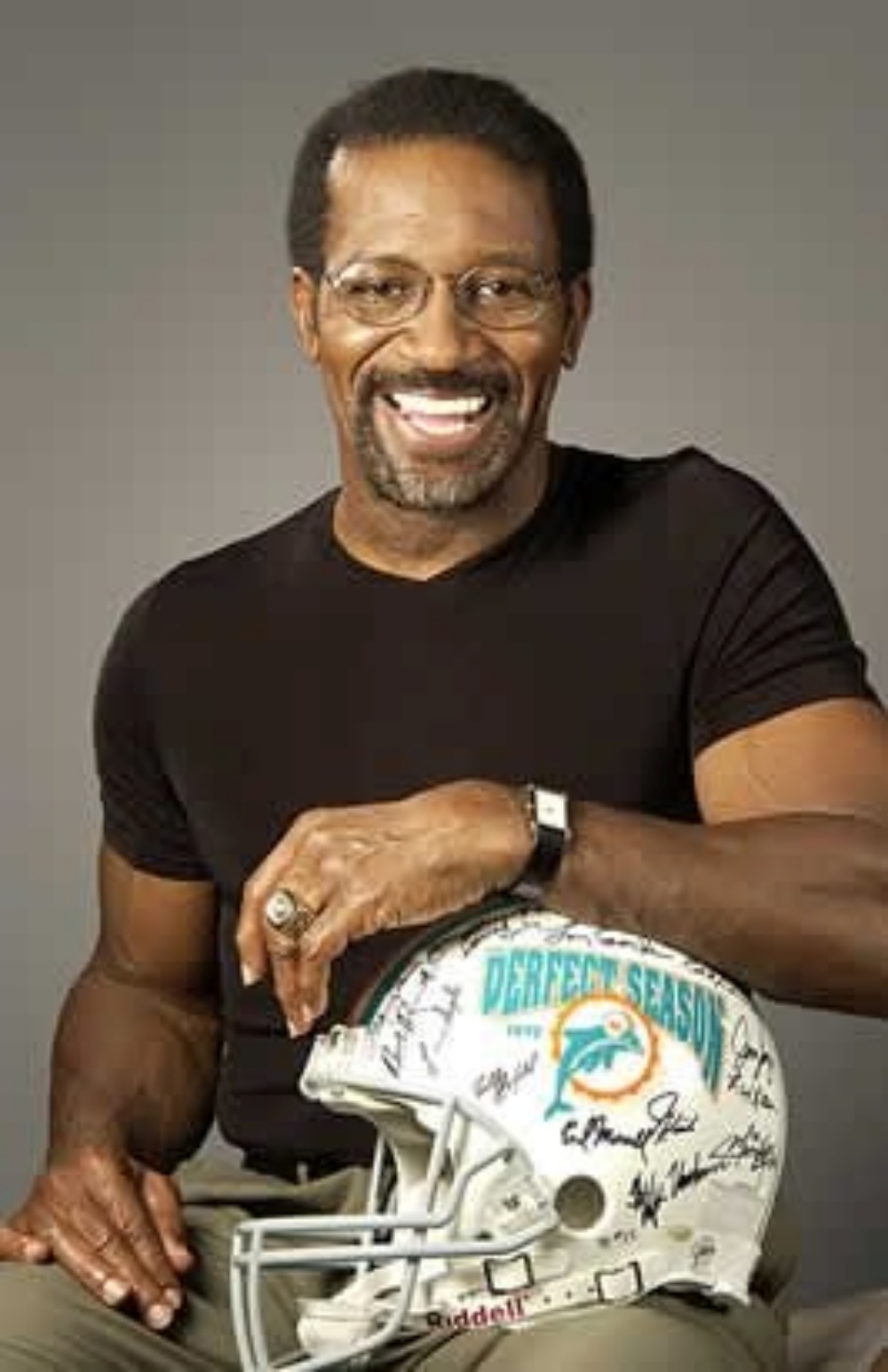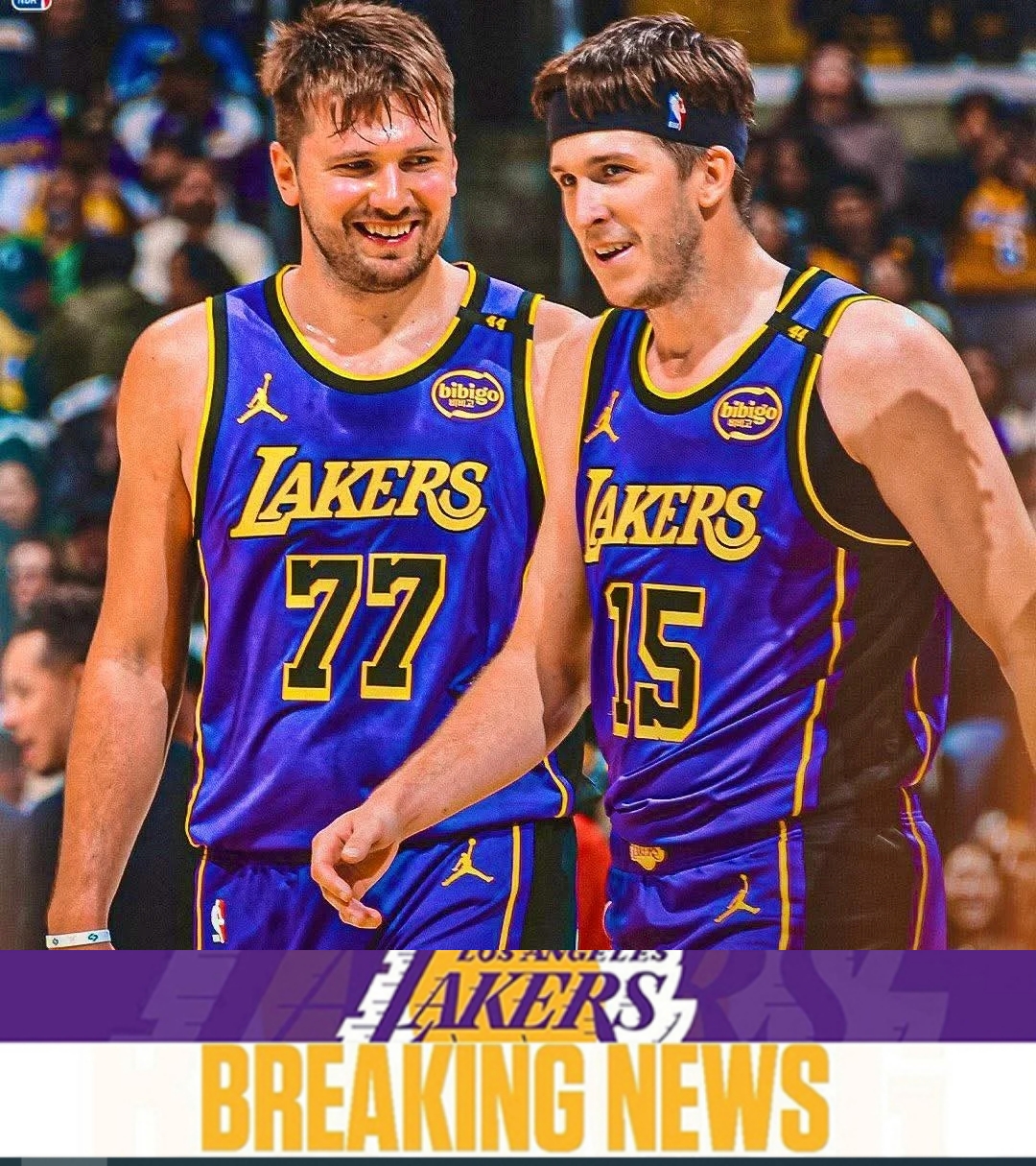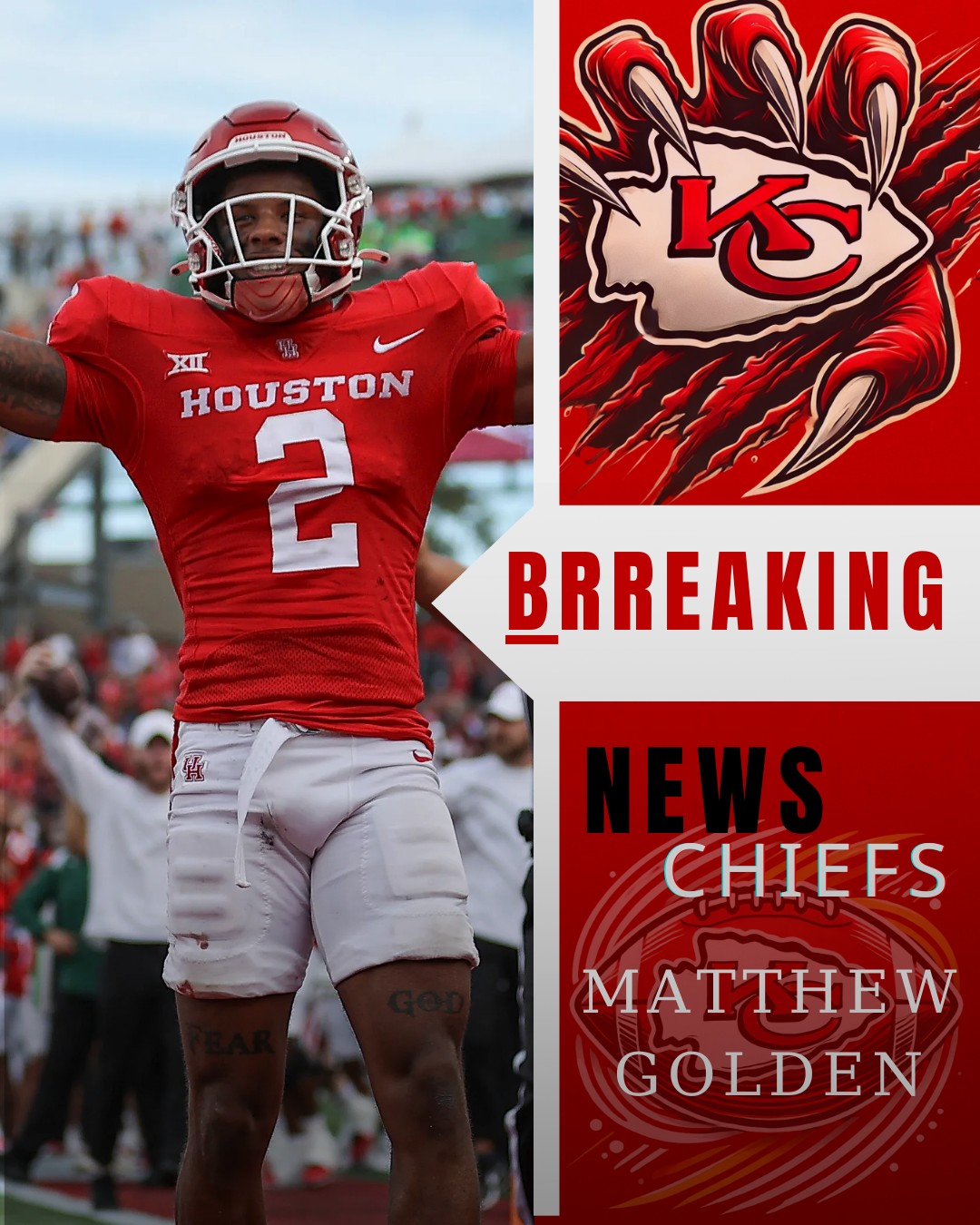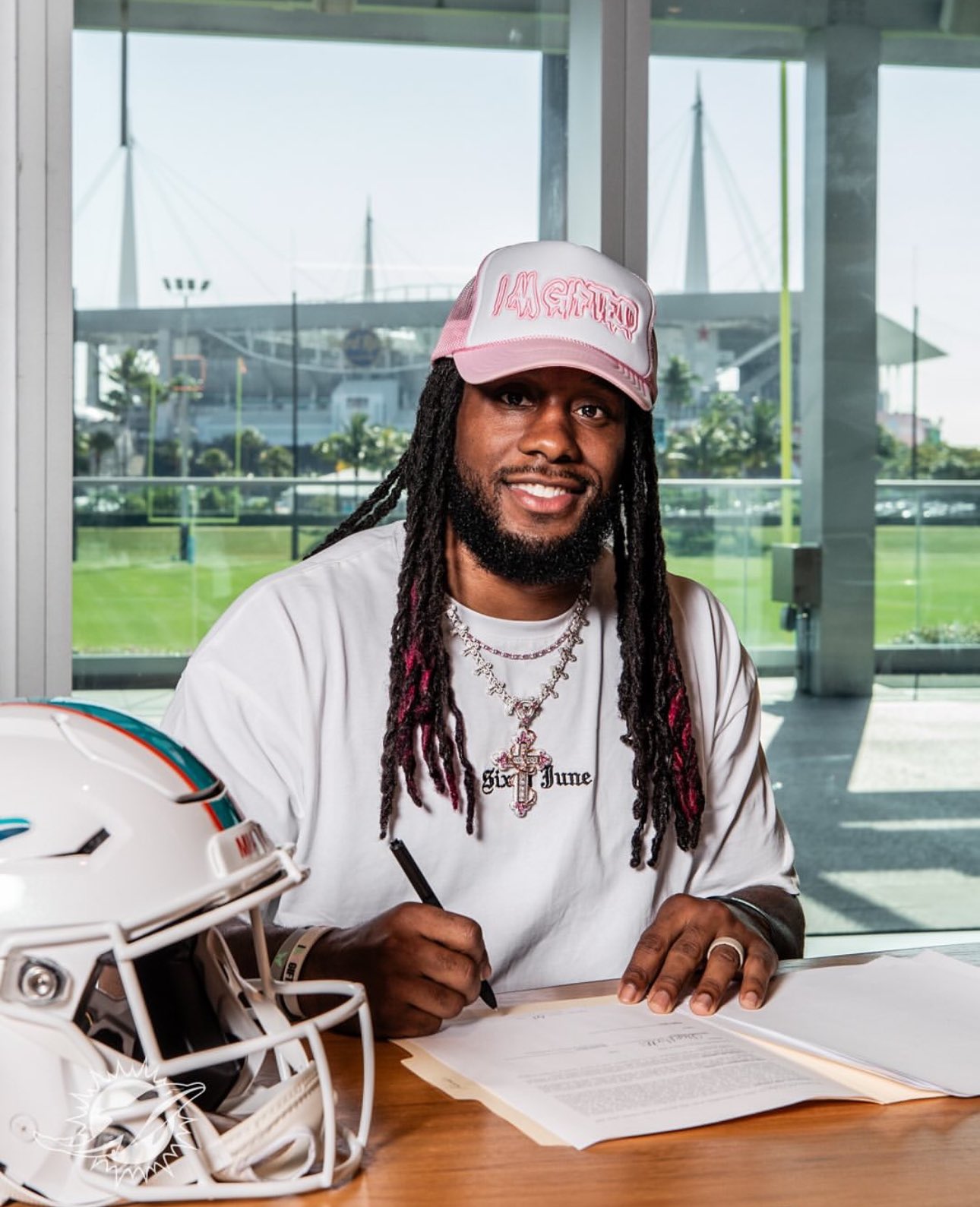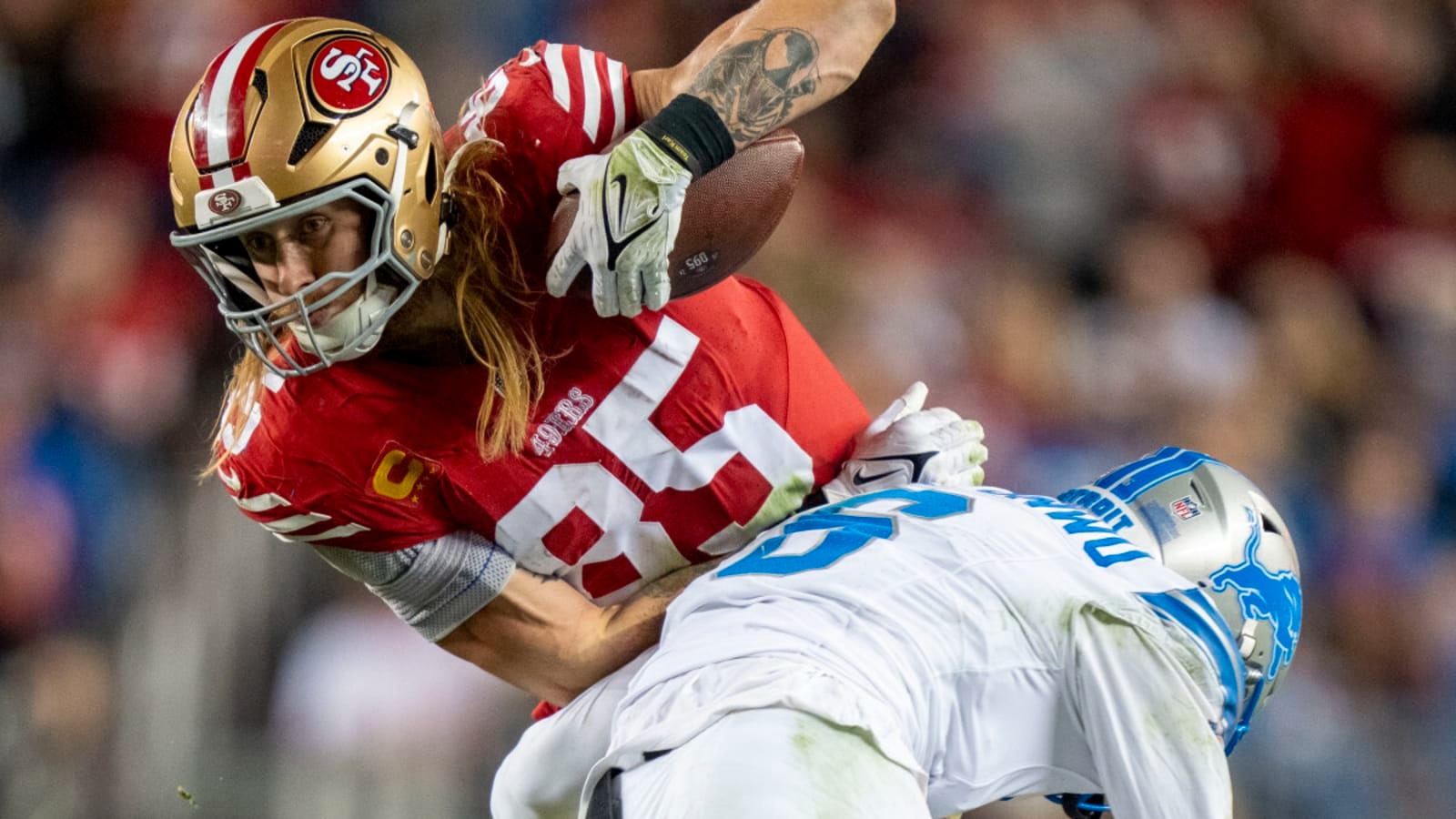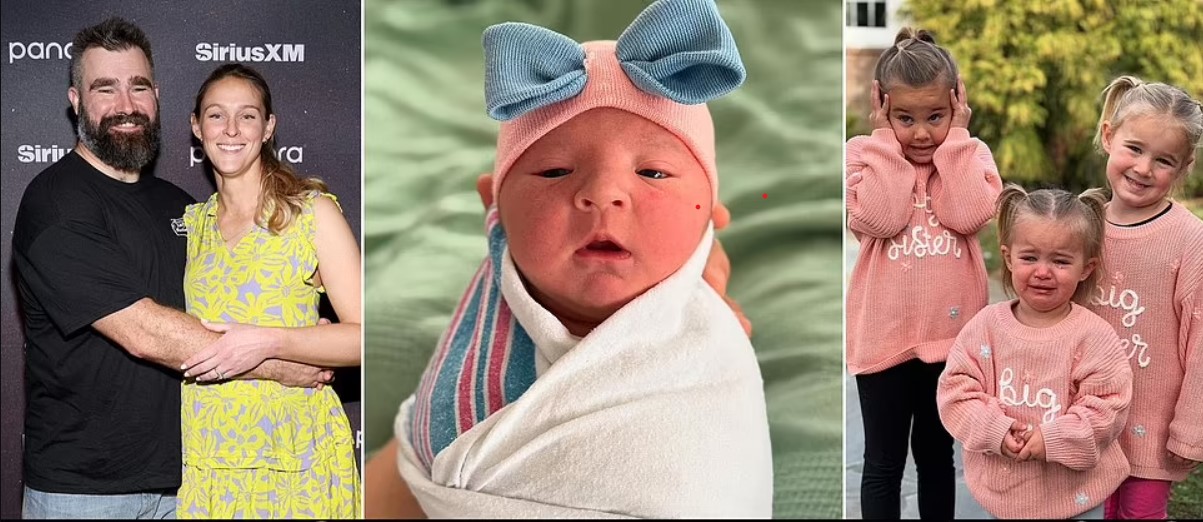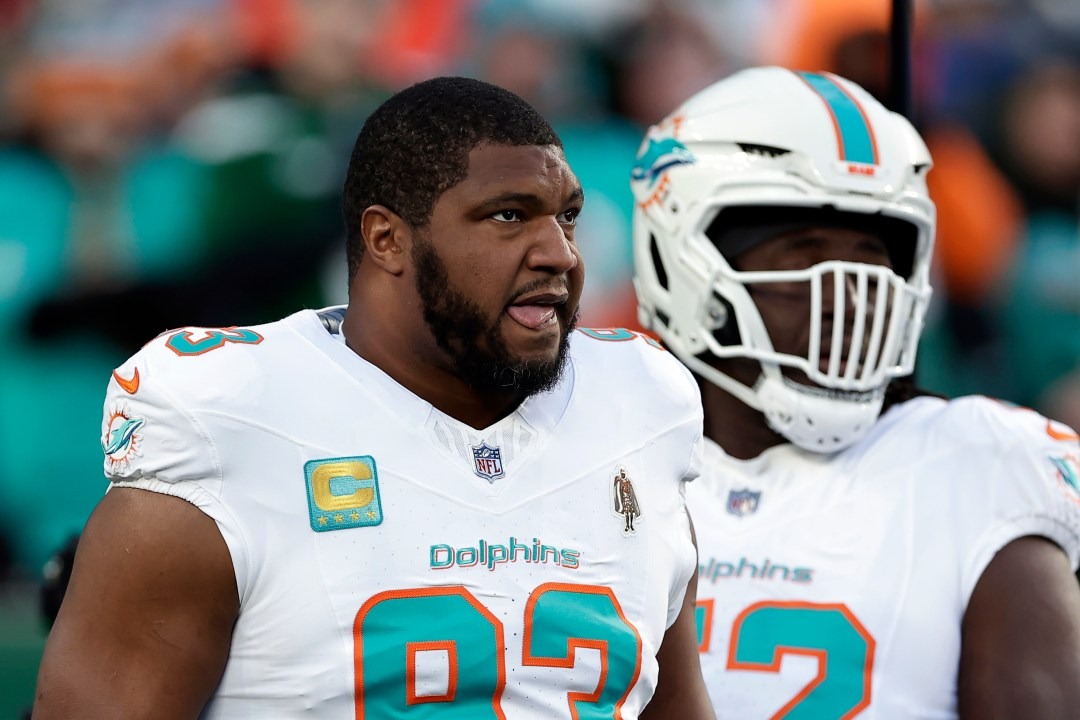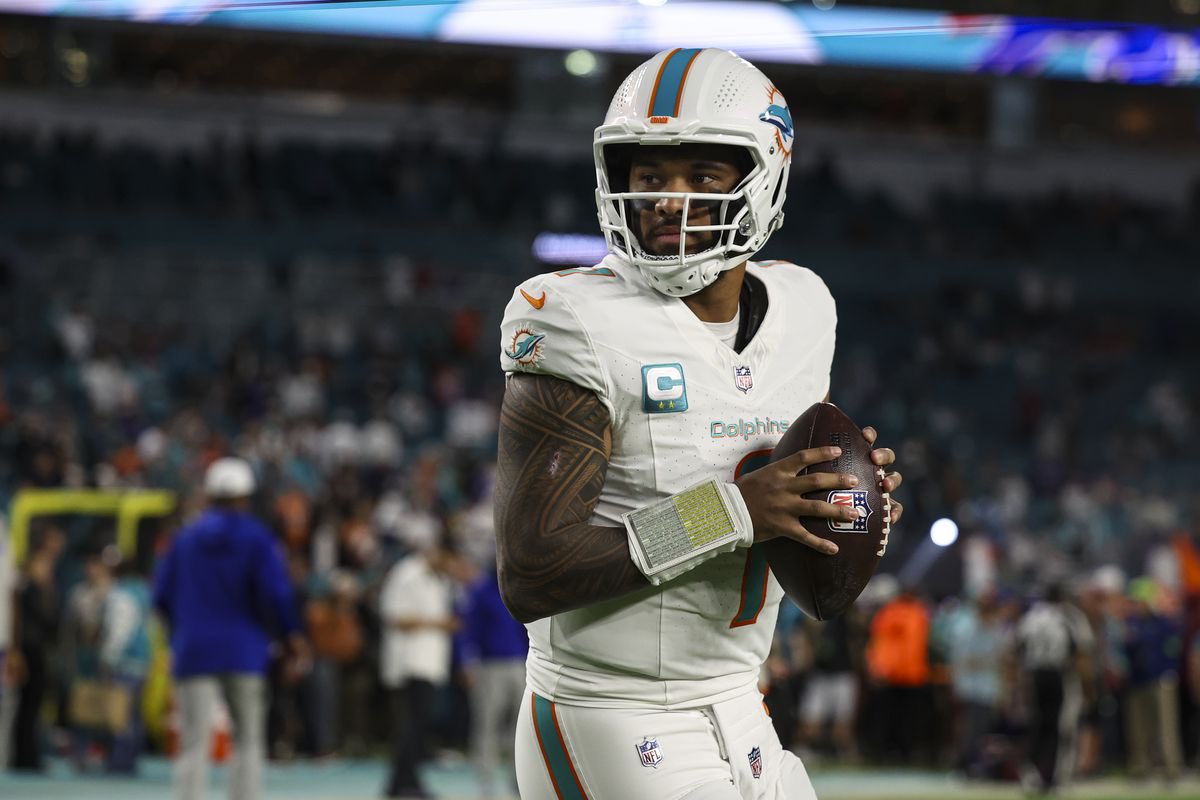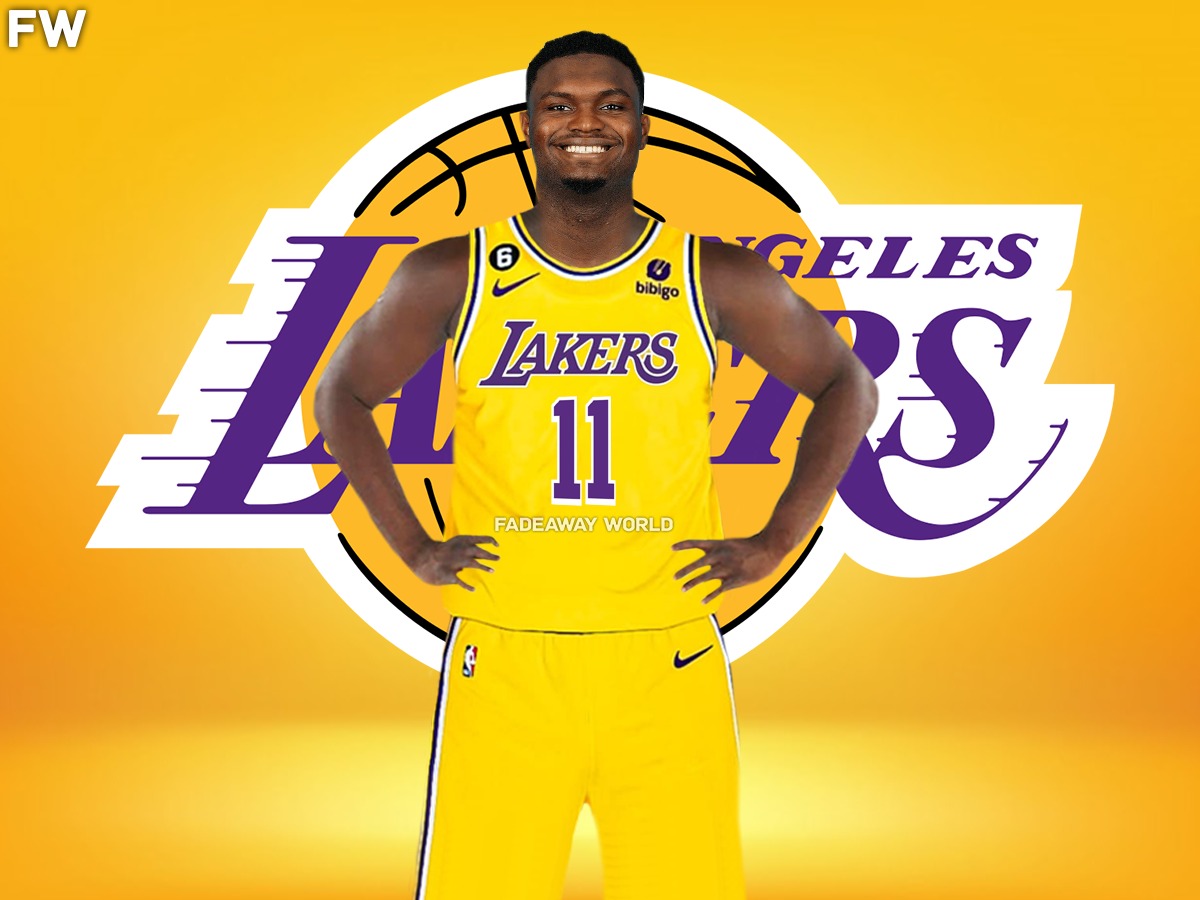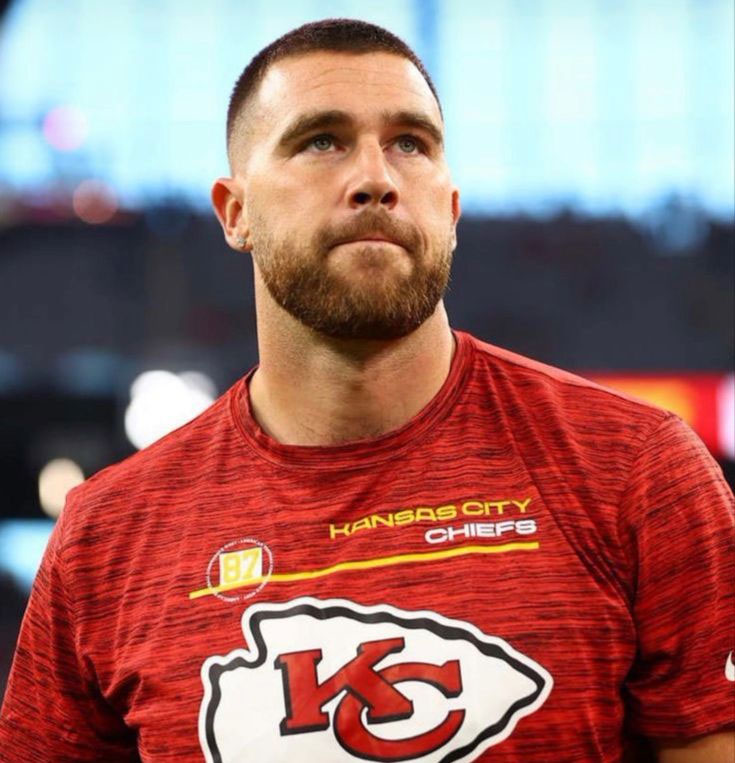Eugene “Mercury” Morris, a name that brings back memories of the Miami Dolphins’ best days, was more than just a great athlete—he was a symbol of strength and excellence in football. Born on January 5, 1947, in Pittsburgh, Pennsylvania.
Morris was drafted by the Dolphins in 1969. He soon became a key player in one of the NFL’s strongest backfields, sharing the spotlight with legends like Larry Csonka and Jim Kiick. His powerful playing style helped the Dolphins win two Super Bowls and was a big part of their undefeated season in 1972.
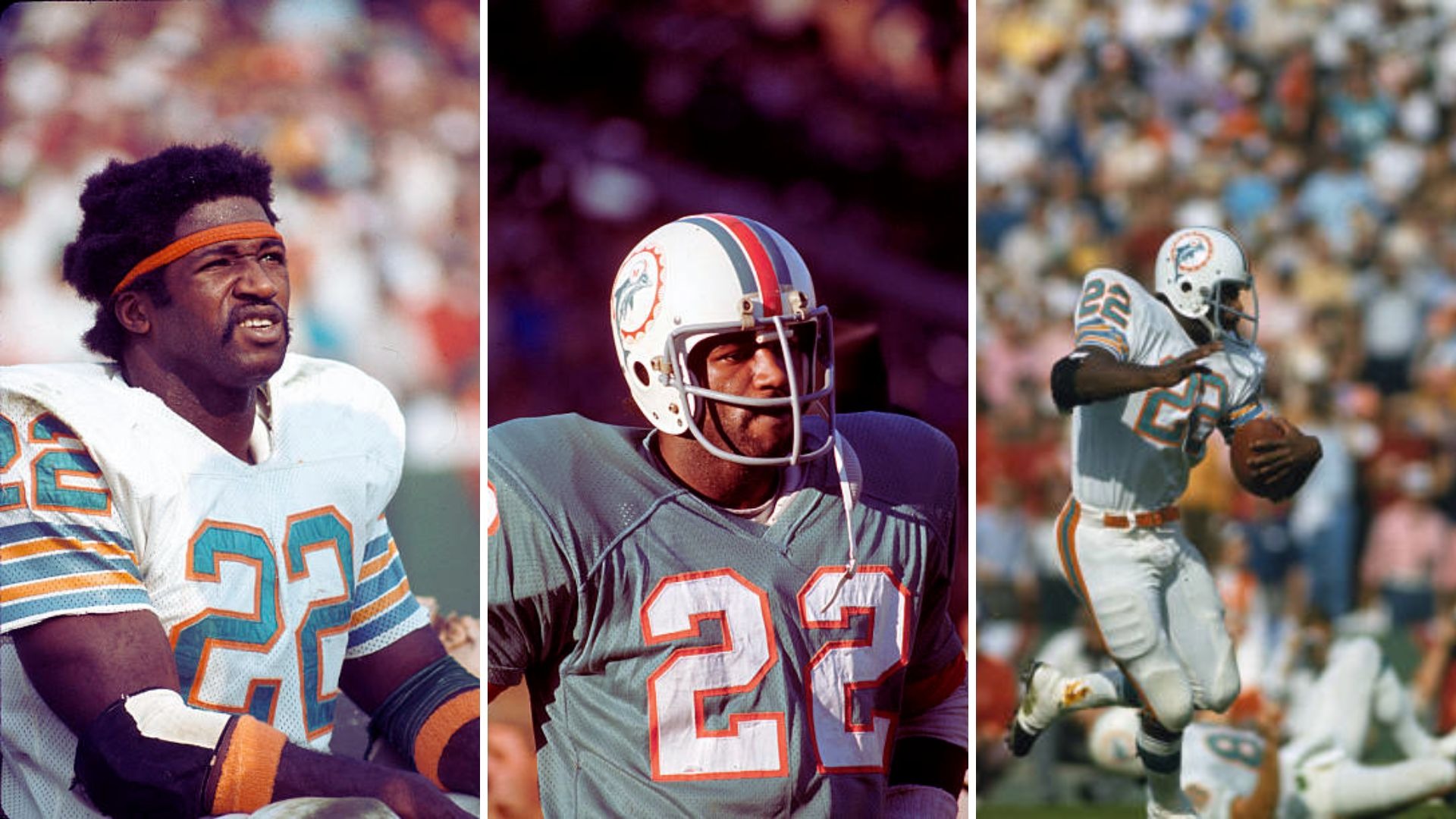
In this article, we discuss the life and career of Mercury Morris, starting with his early years, his time with the Miami Dolphins, his role in the historic 1972 season, and the lasting legacy he left in football.
Morris went on to attend West Texas State University (now West Texas A&M) from 1965 to 1969. He became a standout player, earning All-American honors in 1967 and 1968. In 1967, he was second in the nation in rushing yards, just behind O.J. Simpson.
The following year, he set records for the most rushing yards in a single game (340 yards) and for a season (1,571 yards). Over his college career, Morris racked up 3,388 rushing yards. Although Simpson broke one of his records shortly after, Morris’s impact was already cemented.
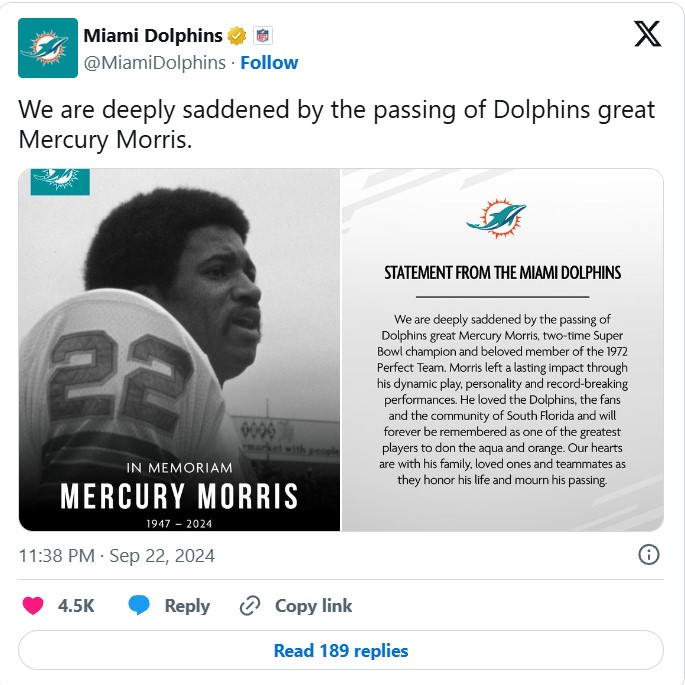
After college, Morris was drafted in the third round of the 1969 AFL-NFL Draft by the Miami Dolphins. As a rookie, he made a strong impression by leading the league in kick returns and total return yards.
Between 1971 and 1973, Morris was selected to three consecutive Pro Bowls and helped the Dolphins reach three straight Super Bowls. Though he wasn’t satisfied with limited playing time in 1971, he still led the AFC in kickoff return average.
Morris truly shined in 1972 and 1973. During the Dolphins’ perfect 1972 season, he rushed for 1,000 yards and led the league with 12 rushing touchdowns. He and Larry Csonka became the first duo in NFL history to each rush for over 1,000 yards in the same season. In 1973, Morris continued his stellar performance, averaging 6.4 yards per carry and scoring 10 touchdowns, helping the Dolphins win back-to-back Super Bowls.
Throughout his 8-year career, mostly spent with the Dolphins, Morris rushed for 4,133 yards and 31 touchdowns. He also made an impact as a return specialist, adding nearly 3,000 yards and three touchdowns on kick returns, finishing with a total of 7,794 all-purpose yards.
Mercury Morris was a standout running back for the Miami Dolphins during the early 1970s, playing a huge part in the team’s success, especially during their legendary undefeated season in 1972.
Morris played for the Dolphins from 1969 to 1975 and ended his career with the San Diego Chargers in 1976. During his 8-year NFL career, his stats were impressive:
- Rushing Yards: 4,133 yards on 804 carries
- Touchdowns: 35 total (31 rushing)
- Pro Bowls: Selected three times (1971-1973)
- Super Bowl Championships: Two wins (Super Bowl VII and VIII)
Known for his blazing speed, Morris earned the nickname “Mercury.” He made big plays as both a running back and kick returner, leading the league in kickoff return yards in his rookie year.
Morris’s biggest contributions came during the Dolphins’ championship years:
- 1972 Season: He rushed for exactly 1,000 yards, becoming part of the first-ever 1,000-yard rushing duo alongside Larry Csonka. He also led the NFL with 12 rushing touchdowns, helping the Dolphins achieve a perfect 17-0 season and win Super Bowl VII against Washington.
- 1973 Season: As the starting halfback, Morris rushed for 954 yards and had an impressive 6.4 yards per carry. His performance was key to the Dolphins winning another Super Bowl (Super Bowl VIII) against the Minnesota Vikings.
Despite facing legal troubles in the 1980s, including drug-related charges, Morris turned his life around. He later used his experiences to motivate others, sharing his story and lessons learned with younger generations.
In 1972, the Miami Dolphins made NFL history by completing the only perfect season ever, finishing 17-0 and winning Super Bowl VII against the Washington Redskins. Under the leadership of Hall of Fame coach Don Shula, the team featured six Hall of Fame players: linebacker Nick Buoniconti, running backs Larry Csonka and Mercury Morris, quarterback Bob Griese, center Jim Langer, guard Larry Little, and wide receiver Paul Warfield.
That season, the Dolphins were ranked number one in both offense and defense, as well as scoring. No other team has ever led the NFL in all these categories in the same season. Csonka and Morris also became the first pair of teammates to each rush for over 1,000 yards in a season, with Csonka reaching 1,117 yards.
The 1972 Dolphins’ perfect season is still the only undefeated and untied season in NFL history. While some critics point out that their schedule was easier than most, the team still had to perform at a high level to win every game. Their record has remained unmatched for over 50 years.
The Dolphins continue to celebrate the 1972 team’s legacy, including a 50th-anniversary celebration in 2022. In 2013, President Barack Obama invited the surviving members of the team to the White House to honor their incredible accomplishment.
Mercury Morris, a standout running back for the Miami Dolphins in the 1970s, made a lasting impact on the NFL. He is best known for his role in the Dolphins’ historic perfect season.
Morris played a key role in the Dolphins’ perfect 17-0 season in 1972. He rushed for 1,000 yards and led the NFL with 12 rushing touchdowns. He and Larry Csonka became the first teammates to each rush for 1,000 yards in a single season.
Morris contributed to the Dolphins’ victories in Super Bowl VII and VIII, helping cement their place as one of the greatest teams in NFL history.
He was selected for three Pro Bowls (1971-1973), highlighting his consistent performance and ability to make game-changing plays for the Dolphins’ offense.
Morris was more than just a great player; his energetic personality made him a fan favorite in South Florida. His nickname “Mercury,” which referred to his incredible speed, became iconic in NFL history.
Despite facing legal challenges in the 1980s, including a conviction for drug trafficking, Morris turned his life around. He became a motivational speaker, using his personal experiences to warn others about the dangers of substance abuse and to inspire growth and redemption.
Morris’s achievements were celebrated throughout his life, and after his passing at age 77 in 21th September 2024, tributes from the football world poured in. The Miami Dolphins honored him as one of their greatest players, ensuring his contributions to the team and the sport would never be forgotten.
After dealing with legal troubles and serving time in the 1980s, Morris turned his life around by speaking out against drug abuse. He used his own experience with addiction and recovery to help others make better choices.
As a motivational speaker, he traveled across the country sharing his story and encouraging people to avoid the mistakes he had made.
Morris also appeared in public service announcements to raise awareness about the dangers of drug use, stressing the importance of taking responsibility for one’s actions and finding redemption.
Even after his struggles, Morris stayed connected with the Miami Dolphins. He often attended team events, especially those celebrating the 1972 undefeated season and their Super Bowl wins. His presence helped keep the memory of the 1970s Dolphins alive, inspiring both fans and new players.
Also Read About- Andy Dalton Career Stats
Morris was a standout athlete at Avonworth High School, excelling in both basketball and football. Despite his athletic prowess, he was considered an underachiever academically.
At West Texas State University (now West Texas A&M University), Morris set multiple collegiate records, including rushing for 340 yards in a single game and finishing with a total of 3,388 rushing yards over his college career.
In 1967, he finished second in the nation in rushing yards to O.J. Simpson, which highlighted his talent despite playing at a smaller school.
Morris was selected in the third round of the 1969 NFL/AFL Common Draft by the Dolphins. His draft stock dropped after a poor performance in the North vs. South Shrine Game, where he struggled against players from larger programs.
In 1974, Morris co-starred in the blaxploitation film The Black Six, alongside other former athletes, showcasing his versatility beyond football.
Mercury Morris, the legendary running back for the Miami Dolphins, left an indelible mark on the NFL through his contributions to the team’s historic 1972 undefeated season and two Super Bowl victories.they became the first duo of running backs to each rush for over 1,000 yards in a single season.
Despite not being inducted into the Pro Football Hall of Fame, Morris remains an iconic figure within Dolphins history and is celebrated for his contributions to the team’s success. His legacy continues to inspire new generations of athletes and serves as a reminder of the impact that a single player can have on a team and a sport.
Mercury Morris played primarily for the Miami Dolphins in the National Football League (NFL) from 1969 to 1975, and he also spent one season with the San Diego Chargers in 1976.
Mercury Morris won two Super Bowls during his career with the Miami Dolphins, specifically Super Bowl VII and Super Bowl VIII.
No, Mercury Morris has not been elected to the Pro Football Hall of Fame, despite his significant contributions to the Dolphins and his role in their historic undefeated season in 1972.
